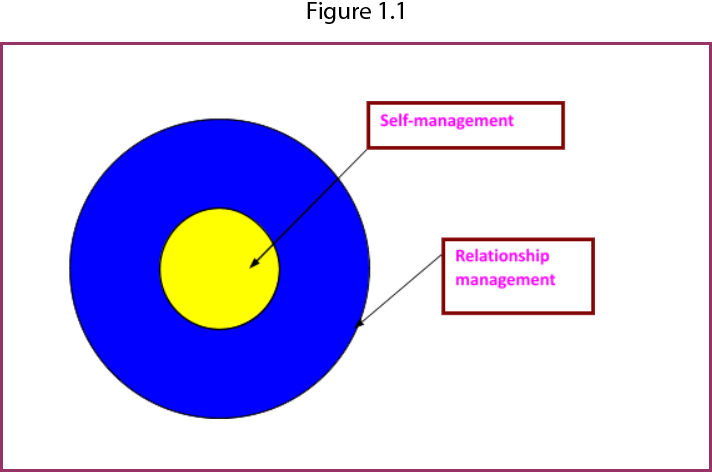
Efforts have also been made to study ancient texts from the point of view of management. In case of India, there exists the rich heritage of Vedic, Jain and Buddhist literature. Jain literature like Vedic and Buddhist literature has touched varied aspects of life and society. One can certainly benefit from the study of some of these ancient texts in the light of present problems.
The present article aims to
❖ Explore the management wisdom from Jain works.
integrate the same with modern management practices
Art of Management
Management is the art of getting things done. It can be defined as coordination of all resources through the process of planning, organising, directing and controlling in order to attain stated goals. It enables us to handle the complexities of life well.
Contemporary challenges
On one hand, modern management tools and techniques have made material prosperity an achievable feat; there is a marked decline in ethical principles and value systems. There is a feeling of lack of trust and confidence among people both in personal and official relationships. The driving forces in today’s rat-race are speed and greed as well as ambition and competition Technology has created complications for life; the simple life having been replaced by one full of tensions. What is pleasant in the short run is given preference over what is appropriate in the long run due to myopic vision. What is required is the total transformation of the individual. It is in this context that the article interprets the Jain concepts and sees whether the same could be of use in better understanding of human behaviour.
Dimensions of Jaina management

While religions professed to have by and large other worldly goals, many of the religious principles and practices promote harmonious environment in this world. Jain Dharm stands as a system with concern for nature and environment.
In many of the Jain works, various management principles and practices have been discussed in detail. Through readings of Jain works, one could locate answers to the numerous gaps that currently afflict the management. The ancient Jain wisdom is refreshingly relevant and more meaningful even today in the complex and dynamic business situations. The Jain texts written thousands of years ago enlighten us on managerial techniques and lead us towards a peaceful life instead of the frustration, envy, conflict and so on. However, it needs to point out here that the management principles and thoughts in the Jain texts are not available at one place at a stretch as a single treatise. These are found scattered here and there in a small bits and pieces in the Jain texts. These could be found while presenting a point of philosophy or a ritual in a prescribed manner.
The concept of Jain management can be understood from the two-dimensional scale constituting the individual and relationship perspectives. (Figure 1.1)
❖ Self-management is the starting point. It consists of physical and mental aspects and addresses the issue of the management of oneself as an individual.
❖ At the next level comes the relationship management. Relationship is a two-way process which implies mutual trust and reciprocation. When any relationship is strained life becomes stressful. Relationship management deals with the relationship of the individual with family and external world and is concerned with the management of harmonious relations with the society. A host of key Jain management principles and concepts drive and facilitate effective relationship management. These include subordinate’s management, communication management, and value system management and so on. In the light of these dimensions, let us have a look at the Jain way of life.
Jain way of life
Jain way of life is an ethical doctrine with self-discipline as at its core. Jain principles and concepts have a holistic approach with human touch. Jainism is not about miracles, or heroism, but practical solutions. Jain texts throw considerable light on the art of management of mind. Jainism advocates overcoming vices like krodha (anger), mada (vanity) and lobha (greed) and recommends the practice of following five principal virtues:
- Ahiṃsā (non-violence)
- Satya (truth)
- Acaurya (non-stealing)
- Brahmacarya (celibacy)
- Aparigraha (non-possession)
Dimensions of Jaina Management
Ahiṃsā means love of humanity and this is possible only when all the barriers and prejudices are removed and by controlling those factors that choke us, degrade us and make us unhappy. As Ãcārāņga Sūtra reads, don’t injure abuse, oppress, enslave, insult, torment, torture or kill others. It is based on the basic idea that just as ‘I like happiness and want to escape suffering’, others also feel the same. It implies that we have to behave with others as we would like to be treated by others. It entails universal friendliness (Maitri), universal forgiveness (kshamā) and universal fearlessness (abhaya). Putting together it creates friendly and peaceful environment at workplace.
The principle of truthfulness lays down that one’s speech should be pleasant, beneficial, true and unhurt to others. It should aim at moderation rather than exaggeration and should be thoughtful.
The principle of Aparigraha which involves reducing attachment to or negation of attachments to material desire is a fool proof remedy to rooting out corruption from our system. Simply stated, it is the voluntary control of wants and abstinence from over-indulgence. It is a way to gain more and more objectivity in life and rationality of approach. The five vows together give a definite outlook on life and create a particular type of mental attitude.
Coming to regulations, Jainism lays down certain regulations. The first of them is manogupti by which the minds to be controlled in the shape of giving only room to pure thoughts. This stands for mind management and is extremely necessary for proper decision-making for e.g., the calm mind in failure will lead the person to deeper introspection and see clearly where the process went wrong so that corrective steps could be taken to avoid such shortcomings in future.
The second gupti is vachan-gupti, that is regulation of speech, and it consists of speaking only as much as is absolutely necessary. This results in effective communication. As Dasavāikālika Sūtra describes, a wise man should not speak without being asked; he should not interrupt while his seniors are talking.
The third is kāyā-gupti that is regulation of one’s bodily activity. In sum, these regulations reflect the ideal of self-management. There can be little doubt that self-regulation and sensory controls outweigh externally imposed rules and regulations.
Anger Management
Display of anger is not uncommon in work environments. In senior-junior relationships, it is often the senior who experiences the need for anger expression – whether it is boss-subordinate or any other. In case of anger outbursts, the offender often fails to make the right impact. Its subtle impact is more injurious and more persistent, generating silent resistance to suggestion, cooperation, initiative and innovation. As Jain Sūtras point out that one who neither loses temper nor becomes arrogant, commands respect.
The question arises why there are repeated manifestations of anger. Failure in making the other party see your point of view or appreciate it adequately or in right time, often gives rise first to frustration and then to anger. The doctrine of Anekāntavāda can be of great help in the given context. It talks about visualizing things from different perspectives. It thereby curbs ego-centric tendency which often creates intricate complicated problems.
That’s to say listening to diverse viewpoints opens up new vistas and dimensions for proper understanding. Anekānt encourages tolerance and promotes inter-personal harmony.
Tolerance
Another essential requirement for working efficiency is tolerance which has been equally emphasized by the Jain tradition. One who cannot tolerate his colleagues and subordinates cannot be an efficient person. Tolerance is all about establishing such good relations that one can work happily with others and others can do the same. Jain dictum of Parasparopagraho jivanam that is ‘all living beings are bound together by mutual support and interdependence’ offers an endearing alternative to the modern Darwinian formula of ‘survival of the fittest’. Jainism has not remained restricted to the principle of live and let live but has expanded beyond; its’ emphasis is on live and help others to live that is ‘living with other’.
Overall, the above discussion brings about that the tuning of the Western model of efficiency, dynamism and striving for excellence to the holistic view of Jainism can create harmony in life and win-win situation.



Superb article….
Thanks.